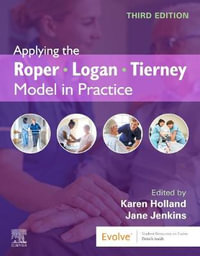
LGBT Populations and Cancer in the Global Context
By: Gabriele Dennert (Editor), Ulrike Boehmer (Editor)
Hardcover | 22 August 2022
At a Glance
Hardcover
$249.59
Aims to ship in 7 to 10 business days
Lesbian, Gay, Bisexual, and Transgender (LGBT) also known as sexual and gender minority (SGM) populations have been the focus of global attention. Most importantly, LGBT populations have been addressed in the context of human rights in multiple reports and other activities by the United Nations and other international organizations. There is great variation among countries in the recognition of LGBT individuals' human rights. A global focus on LGBT populations' health is still limited, with the notable exception of HIV research. The proposed book publication on LGBT populations and cancer in the global context is, therefore, an important step in that it will broaden the focus on LGBT populations' health.
Globally, cancer is the second leading cause of death. Cancer morbidity and mortality are increasing disproportionately among populations in lower-income countries. The World Health Organization (WHO) sets targets for reducing the cancer burden and works with its member states on taking steps towards achieving the respective goals. A review conducted by the WHO found that of the 82% of member states (158) countries, only 35% of the national cancer control plans addresses vulnerable population, including LGBT populations. These findings reflect an increasing awareness about equity when addressing cancer prevention and control, including LGBT populations. Therefore, a seminal book with a global perspective on LGBT populations and cancer is possible and necessary at this moment in time.
Addressing LGBT populations' cancer burden across countries that range from high- to low-income countries is timely to support efforts in diverse countries that are working towards reducing LGBT populations' cancer burden. Documentation of place-specific challenges that impede progress towards reducing the LGBT cancer burden will be a valuable contribution at this time. This critical assessment of the variation in cancer control efforts that target LGBT populations and cancer can be expected to support progress at a global scale. This book will include six sections that cover the six WHO regions, with each chapter written by an author from the specific region s/he is covering. Each chapter will make use of a template that contextualizes the region, local data collection/availability, risk factors, cancer prevention, detection, diagnosis, treatment, and survivorship.
ISBN: 9783031065842
ISBN-10: 3031065840
Published: 22nd August 2022
Format: Hardcover
Language: English
Number of Pages: 348
Audience: Professional and Scholarly
Publisher: Springer Nature B.V.
Country of Publication: GB
Dimensions (cm): 23.5 x 15.5 x 2.06
Weight (kg): 0.66
Shipping
| Standard Shipping | Express Shipping | |
|---|---|---|
| Metro postcodes: | $9.99 | $14.95 |
| Regional postcodes: | $9.99 | $14.95 |
| Rural postcodes: | $9.99 | $14.95 |
How to return your order
At Booktopia, we offer hassle-free returns in accordance with our returns policy. If you wish to return an item, please get in touch with Booktopia Customer Care.
Additional postage charges may be applicable.
Defective items
If there is a problem with any of the items received for your order then the Booktopia Customer Care team is ready to assist you.
For more info please visit our Help Centre.
You Can Find This Book In
This product is categorised by
- Non-FictionMedicineClinical & Internal MedicineDiseases & DisordersOncology
- Non-FictionMedicineMedicine in GeneralHealth Systems & Services
- Non-FictionMedicineMedicine in GeneralPublic Health & Preventive MedicinePersonal & Public Health / Health Education
- Non-FictionMedicineMedicine in GeneralMedical Equipment & TechniquesMedical Research























